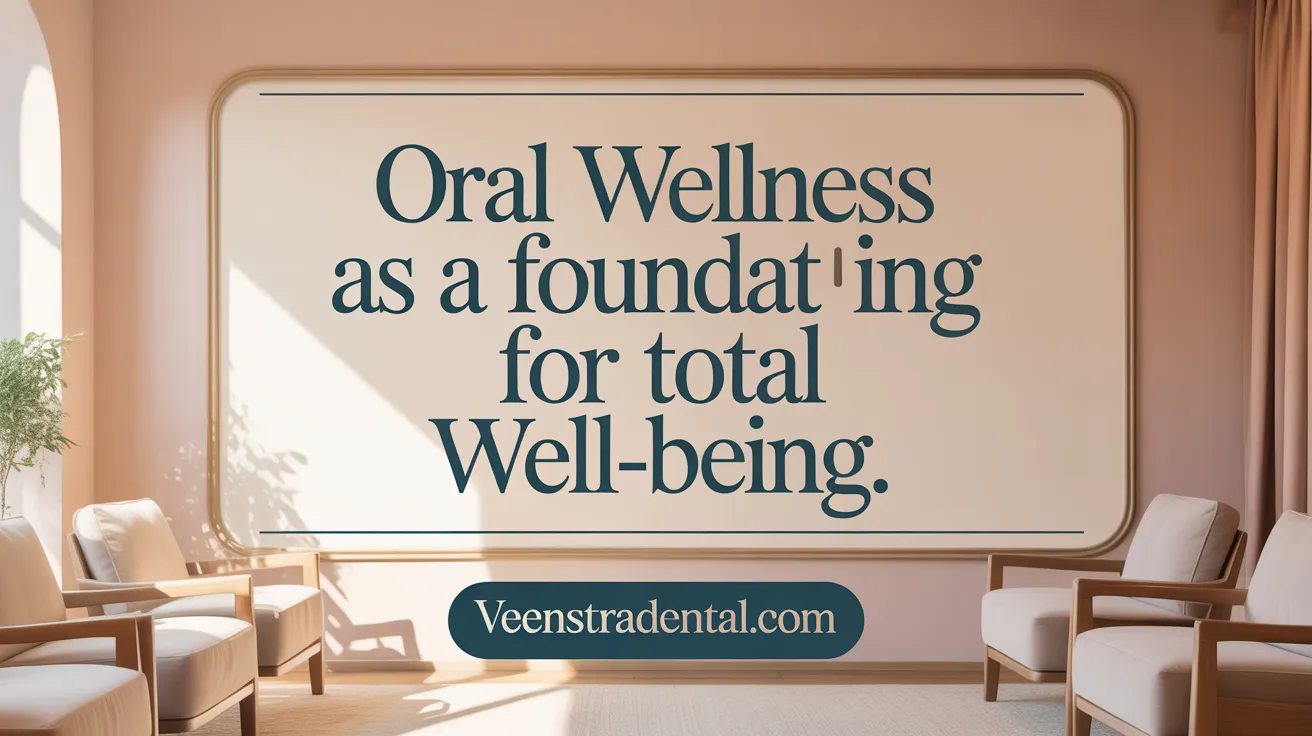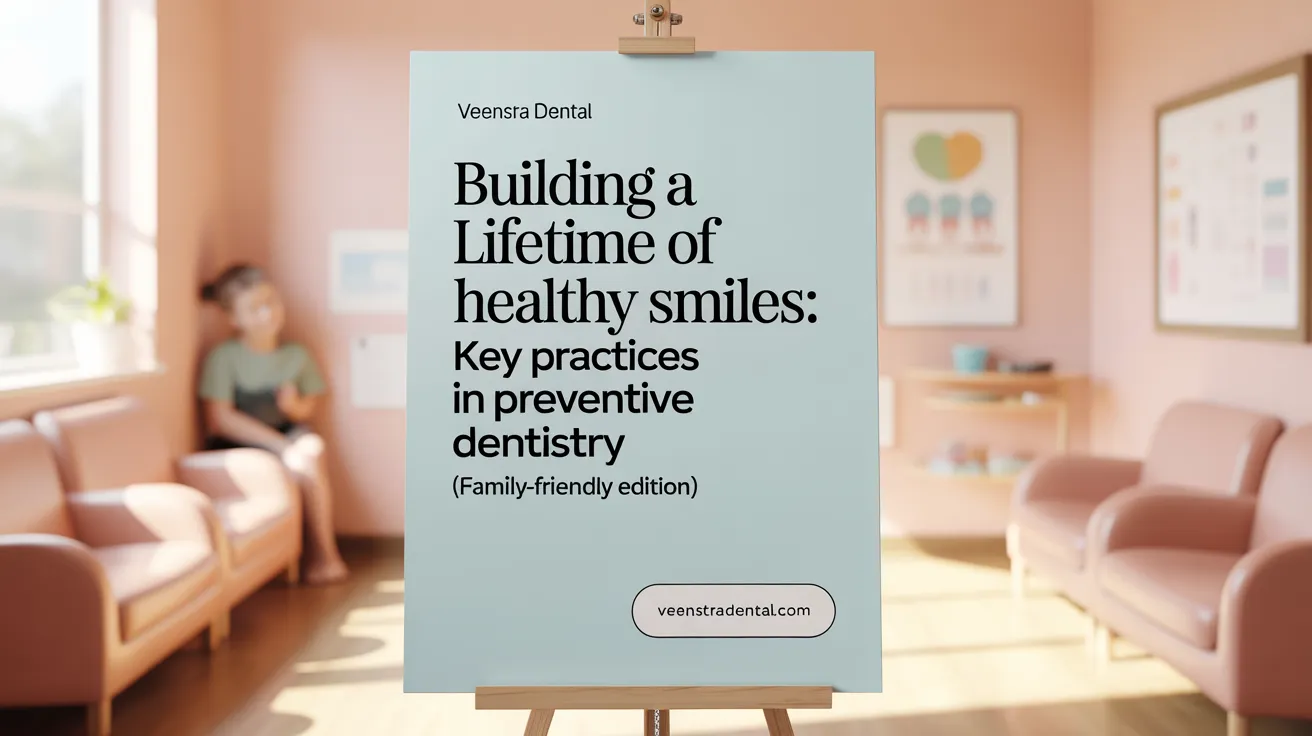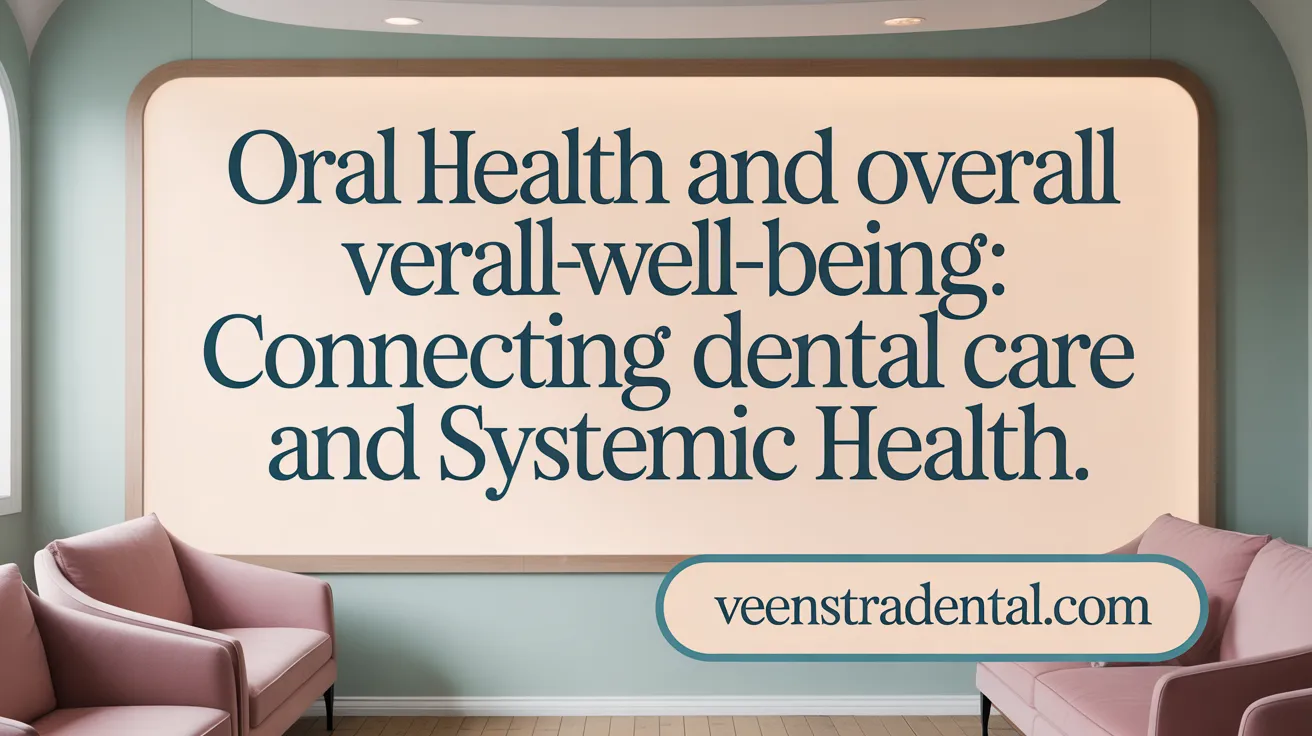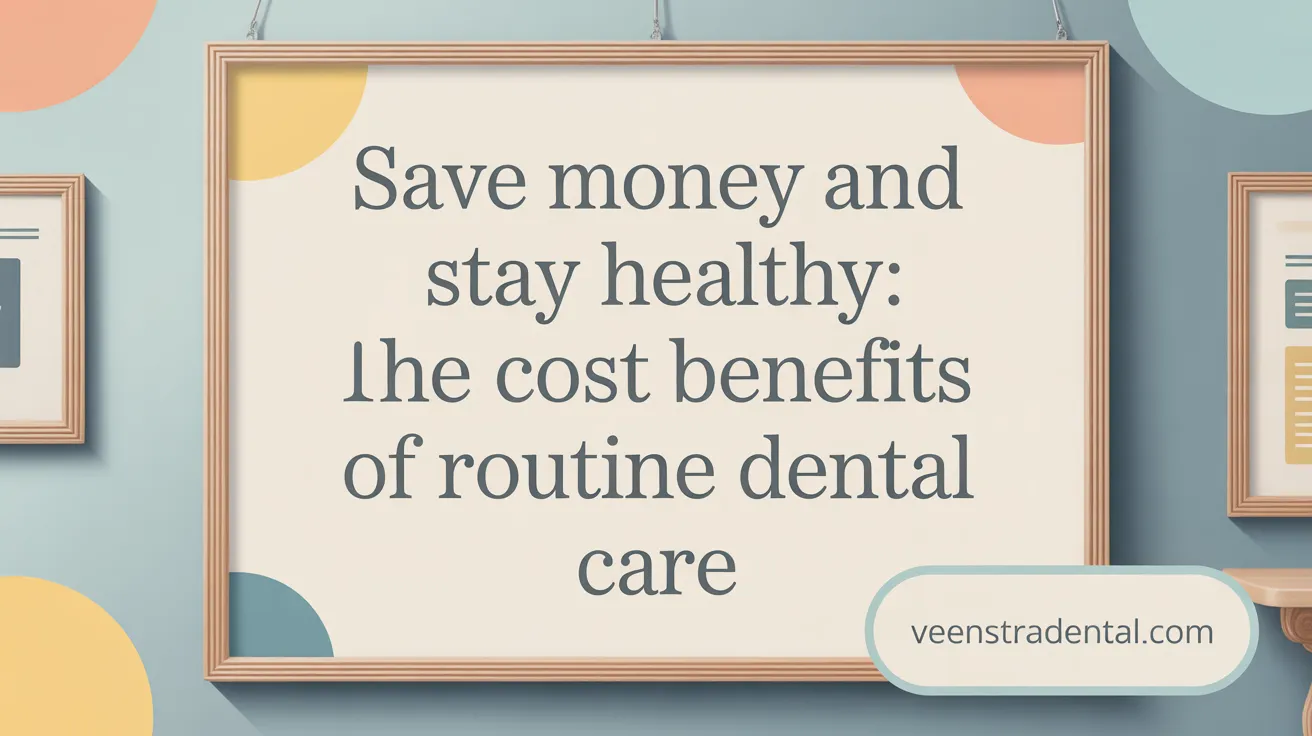Understanding the Foundation of Preventive Dentistry
Preventive dentistry is more than just maintaining a bright smile—it is a vital component in safeguarding overall health and wellness. By focusing on early detection, routine care, and effective oral hygiene practices, preventive dentistry not only protects the mouth from disease but also plays a pivotal role in reducing the risk of systemic health conditions such as heart disease, diabetes, and stroke. This article explores how proactive dental care influences broader health outcomes, promotes well-being, and alleviates the burden on healthcare systems.
The Integral Role of Oral Health in Overall Well-being

How does dental care affect overall health?
Regular dental care is essential to maintaining overall health. It goes beyond keeping teeth clean and bright; it helps prevent conditions such as cavities, gum disease, and oral cancer. These issues are largely avoidable with daily self-care routines like brushing and flossing, along with routine professional treatments.
Poor oral health can lead to pain, difficulty eating, and challenges with speech, all of which diminish quality of life. More seriously, untreated dental diseases have been linked to systemic health problems. For example, gum disease (periodontitis) is associated with worsened blood sugar control in individuals with diabetes, and it can increase the risk of cardiovascular disease. Tooth loss, often a consequence of untreated decay or gum disease, impacts nutrition by making chewing difficult and may lower self-esteem, affecting social interactions and mental health.
Public health initiatives, such as community water fluoridation and school-based sealant programs, aim to reduce dental disease prevalence at the population level. Regular dental visits enable early detection and management of oral health issues, preventing their progression and the potential systemic complications.
Overall, good oral hygiene and accessible preventive dental care significantly contribute to physical health, mental well-being, and a higher quality of life. Protecting oral health isn’t just about teeth; it’s a vital part of holistic health.
Preventive Dentistry: Pillars and Practices for Lifelong Oral Health

Why is preventive dentistry important?
Preventive dentistry plays a vital role in maintaining overall oral health and preventing common dental issues such as cavities, gum disease, and tooth erosion. Through regular check-ups, professional cleanings, fluoride treatments, and sealants, early signs of dental problems can be detected and addressed before they develop into more serious conditions. Good daily habits like brushing twice a day with fluoride toothpaste, flossing, and dietary management greatly enhance prevention efforts. Importantly, oral health is linked to systemic health; preventing infections and inflammation in the mouth can reduce risks of conditions like diabetes and heart disease. Overall, preventive dentistry not only reduces pain and dental emergencies but also helps save on costly treatments, supporting a healthier, longer-lasting smile.
What are the key components or pillars of preventive dental care?
The foundation of preventive dental care includes comprehensive assessments, including a detailed 10-point checklist to spot early issues. Personalized care plans, such as the Peace of Mind Care Plan, focus on ongoing prevention tailored to individual needs, avoiding surprise costs and emphasizing long-term health.
Modern techniques and materials, like digital X-rays and laser decay detection, enable precise diagnosis and minimally invasive intervention. Skilled dental professionals and hygienists work together to offer preventive services, including routine exams, cleanings, fluoride applications, and sealants.
Regularly scheduled visits serve to stop tooth loss early, while proactive interventions—such as sealants protecting molars or deep cleanings to reverse gum disease—are tailored specifically for each patient. These practices are supported by community awareness and environmentally conscious policies, fostering a holistic approach that prioritizes patient well-being and sustainability.
Importance of good oral hygiene habits
Daily oral hygiene practices form the first line of defense against dental problems. Brushing twice daily with fluoride toothpaste, flossing, and maintaining a balanced diet reduce plaque buildup and bacterial growth.
Limiting sugary snacks and drinks prevents decay-causing acids from attacking enamel. Avoiding tobacco and managing lifestyle habits also contribute significantly to oral health.
By adopting these habits, individuals can control germs in the mouth, reduce inflammation, and lower the risk of periodontal disease, which has been directly linked to systemic conditions like heart disease, stroke, and diabetes.
Education on brushing, flossing, and diet
Patient education is central to preventive dentistry. Teaching effective brushing and flossing techniques, along with dietary guidance, empowers people to maintain healthy habits at home.
Dental professionals advise on the importance of using proper tools, such as soft-bristled brushes and fluoride toothpaste, and encourage routines like replacing brushes regularly.
Dietary advice includes choosing nutrient-rich foods, maintaining hydration, and reducing sugary foods and beverages that foster decay. Lifestyle modifications like quitting smoking and limiting alcohol further support oral and overall health.
Use of technologies like digital X-rays and screenings
Advancements in dental technology, including digital X-rays and laser detection systems, have revolutionized preventive care. Digital X-rays expose patients to less radiation and enable early detection of issues like cavities and bone loss.
Screening tools can identify decay or abnormalities before symptoms appear, facilitating minimally invasive treatments.
Together, these technologies improve diagnostic accuracy, speed up procedures, and enhance patient comfort. Early diagnosis through advanced tools leads to better health outcomes, reduced treatment costs, and a stronger emphasis on proactive prevention.
| Aspect | Description | Benefits |
|---|---|---|
| Regular Check-ups | Biannual exams and cleanings | Early problem detection, plaque removal |
| Fluoride Treatments | Strengthen enamel | Decay prevention, higher resistance |
| Dental Sealants | Protective coating on molars | Prevents up to 80% of cavities in children |
| Digital X-rays | Low-radiation imaging | Precise diagnosis, early detection |
| Patient Education | Oral hygiene and lifestyle | Long-term habit formation, health promotion |
This integrated approach, combining effective habits, cutting-edge technology, and personalized care, supports a lifetime of healthy smiles and overall well-being.
How Preventive Dental Care Influences Systemic Health Conditions

What is the impact of preventive dental care on systemic health conditions such as heart disease, stroke, and diabetes?
Preventive dental care significantly contributes to reducing risks related to systemic health issues. By controlling periodontal disease and maintaining a balanced oral microbiome, good oral hygiene practices can lower systemic inflammation — a common link among conditions such as heart disease, stroke, and diabetes.
Research indicates correlations between periodontal infections and these chronic conditions. This connection primarily relies on mechanisms like bacterial translocation into the bloodstream, which triggers immune responses and inflammation affecting other parts of the body.
While causality is complex and still under study, evidence suggests that proactive oral health management can help lessen systemic inflammation and improve overall health outcomes. Regular dental checkups, professional cleanings, and periodontal treatment help maintain oral health and potentially lessen the severity or risk factors associated with these systemic diseases.
Including oral health as part of comprehensive health care and emphasizing prevention can reduce complications and support long-term health. Overall, good dental hygiene plays a vital role in the broader effort to manage and prevent chronic conditions such as cardiovascular disease and diabetes.
How does inflammation and bacterial pathways connect oral and systemic health?
Infections in the mouth, especially gum disease, are linked with increased systemic inflammation. Oral bacteria can enter the bloodstream during routine activities like brushing and flossing when gums are inflamed or damaged.
This bacteria and the body's immune response can contribute to atherosclerosis — hardening of the arteries — which increases the risk of heart attacks and strokes. Additionally, oral bacteria may influence insulin resistance, worsening blood sugar control in diabetics.
Inflammation caused by periodontal disease can also exacerbate other chronic conditions, creating a cycle of worsening health.
How can preventive care reduce systemic inflammation and health risks?
Preventive dental services, including regular cleanings, periodontal therapy, and maintaining good oral hygiene, help reduce bacterial load and inflammation in the mouth. This limits bacteria's ability to enter the bloodstream and trigger immune reactions.
By controlling gum disease early, individuals can lower overall systemic inflammation, which is linked to decreased risks of cardiovascular diseases and improved diabetes management.
Additionally, adopting lifestyles that promote oral health — such as quitting smoking, managing diet, and controlling blood sugar — further enhances systemic health benefits.
How is management of chronic diseases improved through oral health care?
Effective oral health care is essential for managing chronic diseases like diabetes and cardiovascular conditions. For example, periodontal treatment can improve blood sugar control in diabetics, as gum inflammation worsens insulin resistance.
Conversely, managing systemic conditions can improve oral health outcomes. Better blood sugar regulation reduces the risk of infections and periodontal disease.
Integrating oral health into regular medical care and emphasizing preventive dental practices can lead to better overall management of chronic diseases, reducing complications and healthcare costs.
In sum, maintaining good oral hygiene and seeking preventive dental care are vital components of holistic health strategies aimed at reducing systemic inflammation and managing long-term health risks.
The Benefits of Early Detection and Routine Dental Visits
What are the benefits of early detection and regular preventive dental visits for overall health?
Regular routine dental visits play a crucial role in maintaining both oral and overall health. Early detection of dental issues such as cavities, gum disease, and oral cancer allows for swift intervention, often preventing serious health complications or the need for invasive treatments.
Professional cleanings during these visits help eliminate plaque and tartar buildup that daily brushing and flossing might miss. This not only reduces the risk of cavities and gum disease but also helps maintain fresher breath and a more attractive smile.
Dentists and dental hygienists can offer personalized advice tailored to individual needs, covering effective oral hygiene techniques, dietary recommendations, and lifestyle changes. Such guidance empowers patients to maintain healthy habits and can significantly reduce the incidence of future dental problems.
Importantly, regular dental exams can reveal early signs of systemic conditions like diabetes, heart disease, and even certain cancers — conditions that have been linked to poor oral health. Detecting these issues early can lead to timely treatment, potentially saving lives.
By focusing on prevention and early detection, routine dental visits minimize the likelihood of complex, costly procedures like root canals, extensive restorations, or surgeries. This approach not only improves health outcomes but also reduces healthcare expenses over time.
In summary, proactive dental care offers a comprehensive benefit: it preserves oral health, bolsters systemic health, and enhances quality of life, all while lowering long-term healthcare costs.
Preventive Dentistry's Role in Reducing Healthcare Costs and Treatment Needs

How does preventive dental care contribute to reducing healthcare costs and treatment needs?
Preventive dental care is fundamental in curbing dental health problems before they become severe. Regular dental visits, including check-ups, cleanings, fluoride treatments, and sealants, help detect dental issues early. This proactive approach reduces the necessity for costly procedures such as root canals, crowns, and surgical interventions.
Research shows that every dollar spent on preventive dental care can save between $8 and $50 in future treatment costs. These savings benefit both individual patients and broader healthcare systems by decreasing the demand for emergency and complex treatments.
Furthermore, preventive services lead to better overall health outcomes. Maintaining healthy teeth and gums reduces the risk of systemic diseases such as heart disease and diabetes, which are often exacerbated by poor oral health.
Implementing early and routine dental care not only prevents pain and discomfort but also lowers the frequency of emergency visits. This reduction translates into fewer work and school absences, subsequently lowering productivity losses. Overall, preventive dental practices create a healthier population while making healthcare expenditures more sustainable.
| Aspect | Impact | Additional Notes |
|---|---|---|
| Cost savings | Significant reduction in treatment expenses | Prevents the need for costly, extensive procedures |
| Treatment avoidance | Less need for root canals, crowns, surgeries | Early intervention keeps dental issues manageable |
| Economic benefits | Lower healthcare costs overall | Saving money for patients and public health systems |
| Systemic health improvement | Reduced risk of related diseases | Healthy mouths contribute to overall well-being |
| Productivity gains | Fewer work and school absences | Maintaining oral health supports daily activities |
Efforts to promote widespread access to preventive services can lead to substantial long-term cost reductions and healthier communities.
Promoting General Wellness and Enhancing Quality of Life through Preventive Dentistry
 Preventive dental procedures, including cleanings, fluoride treatments, sealants, and routine exams, serve as vital tools in safeguarding oral health and preventing dental diseases such as cavities and gum disease. Regular professional cleanings remove plaque and tartar that daily brushing might miss, reducing the risk of decay and inflammation. Fluoride strengthens enamel, making teeth more resistant to decay, while dental sealants provide a protective barrier on molars, particularly in children, preventing up to 80% of cavities.
Preventive dental procedures, including cleanings, fluoride treatments, sealants, and routine exams, serve as vital tools in safeguarding oral health and preventing dental diseases such as cavities and gum disease. Regular professional cleanings remove plaque and tartar that daily brushing might miss, reducing the risk of decay and inflammation. Fluoride strengthens enamel, making teeth more resistant to decay, while dental sealants provide a protective barrier on molars, particularly in children, preventing up to 80% of cavities.
Education on lifestyle choices and dietary habits complements these preventive measures. Teaching effective brushing and flossing, promoting healthy diets rich in fruits and vegetables, and advising on the impact of smoking and alcohol are essential in maintaining lifelong oral health. Early guidance encourages children to develop habits that result in fewer dental issues and better overall wellness.
Good oral health significantly influences overall quality of life and systemic health. It allows individuals to eat comfortably, speak clearly, and engage socially with confidence. Oral diseases like cavities and gum infections can impair these functions, leading to discomfort and self-esteem challenges. Moreover, poor oral health has been linked to chronic conditions such as diabetes, heart disease, and pregnancy complications. Inflammation and bacteria from diseased gums can enter the bloodstream, exacerbating systemic health issues.
Maintaining healthy teeth and gums reduces the risk of systemic diseases by decreasing bacterial load and inflammation. Scientific studies support the connection between gum disease and conditions such as cardiovascular disease and dementia, highlighting the importance of preventive care beyond the mouth.
Focusing on pediatric preventive care is especially important. Early intervention and habit formation—like brushing twice daily with fluoride toothpaste and avoiding sugary snacks—set a foundation for lifelong health. Establishing these routines helps prevent decay, promotes good oral hygiene, and supports overall health as children grow.
In summary, proactive preventive dental care not only preserves oral function and aesthetics but also contributes to overall health and well-being. Access to affordable services and health education plays a crucial role in reducing disparities, improving population health, and ultimately enhancing quality of life through better oral health management.
Preventive Dentistry: A Cornerstone for Healthier Lives
Preventive dentistry is foundational in linking oral health to overall wellness. Through consistent care, education, and early intervention, it mitigates the development of oral diseases that can escalate into serious systemic conditions. The economic advantages reinforce its value, sparing individuals and healthcare systems from burdensome costs associated with advanced treatments. Beyond health and finances, preventive dentistry nurtures confidence and social well-being, enriching quality of life. Embracing preventive dental care ensures not only healthier smiles but also a healthier body — a true testament to holistic health care.
References
- The Value of Preventive Oral Health Care - UIC College of Dentistry
- Evidence of effectiveness of preventive dental care in reducing ...
- Preventive Dental Care | Branin Center for Dentistry
- Why Preventive Dental Care Matters for Everyone's Health
- Oral health: A window to your overall health - Mayo Clinic
- Five Reasons Why Preventive Dentistry Is Vital
- Preventative Dentistry: The Cornerstone of Oral Health
- The Impact of Preventive Dental Care on Overall Health Care
